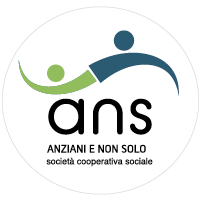Erasmus+ ARTY:aims to train educators and social workers in the use of art-therapy techniques in a digital context to support adolescent mental health
Erasmus+ YOUTH ASD:works on the integration of young people with autism spectrum disorders in voluntary activities to promote their social inclusion.
Erasmus+ Well@SME: promotes workers’ mental health and practices to combat work-related stress within small and medium-sized companies
Erasmus+ BESTCARE4LGBTI: promotes the identification of requirements for ‘LGBTI-friendly’ elderly care services and the training of caregivers to implement inclusive care activities
ERASMUS+ BEAC: promotes the active citizenship of socially disadvantaged young people through the philosophy for children and artful thinking methodologies.
SOCIAL CONNECTIONS – The SOCIAL CONNECTION project has the goal to develop digital pedagogical competences of C-VET educators in the social sector, enabling them to teach their students how to develop and use high-quality digital content for social inclusion of clients which are housebound because of disability, illness, or COVID-19 related restrictions.
NATIONAL AGENCY FOR WORK – SARDINIA REGION – Training Rickter Scale® – Aim of the project is to train the operators of Sardinia Region Employment Service to the use of the Rickter Scale® as a tool to support the employment of youth unemployed
LLP-LDV COMETA – Aim of COMETA is to identify soft skills common to a cluster of social professions across Europe. The project is ECVET—based.
Progress AIDA – Objective of AIDA is the development of National guidelines for the integration between social and health care services at community level.
LLP-LDV SCALING NEW HEIGHTS IN VET – the project aims to transfer to Italy, Greece and Germany the Rickter Scale, a mentoring and counselling tool for disadvantaged groups
EIF—INSIEME NELLA CURA – an action research project to improve the quality of services for migrant domestic workers provided in the Province of Reggio Emilia, Northern Italy
Leonardo Partnership “ASK” – The partnership, ASK, seeks to analyse different methods of assessing and certificating non-formal and informally acquired skills in vocational education and training in the participating regions.

